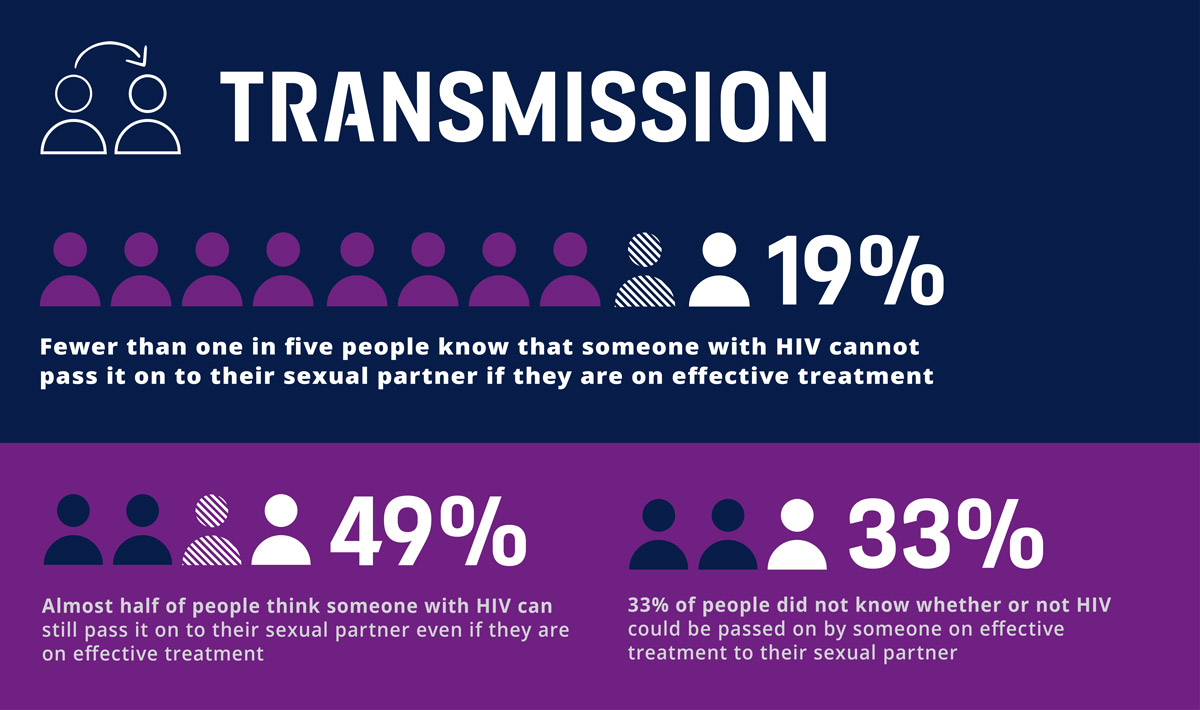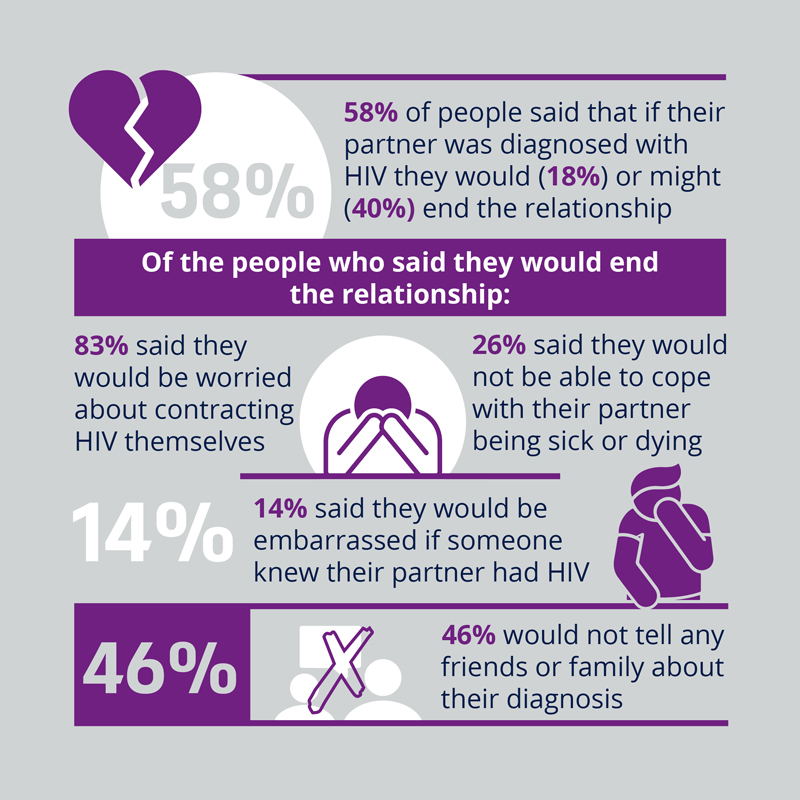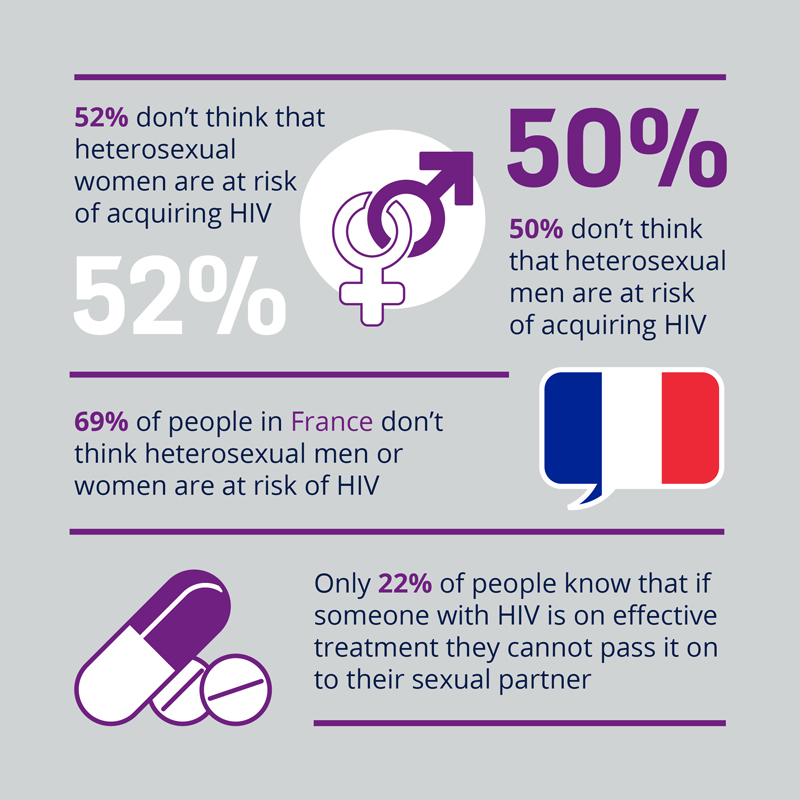
“I realise now that before I was diagnosed I didn’t know enough about HIV. For example I didn’t know that, on effective treatment, people living with HIV cannot pass it on through sexual contact. I didn’t know the specifics in terms of transmission routes and I thought people living with HIV would not live as long. I see now that these misunderstandings are so common and lead to stigma around HIV and people living with HIV. I’m determined to change this and make sure everyone knows the facts.”
Gareth Thomas
“People living with HIV are not dangerous, they are not a threat to you, your friends, family or to society. We create barriers with our own ignorance. Science is winning the battle against the virus, but public misunderstanding and stigma are a long way behind. We support Gareth and the Tackle HIV campaign to inspire us to learn and help make the changes we need to make in our society to end HIV/AIDS.”
Sir Elton John and David Furnish, Founder and Chairman of the Elton John AIDS Foundation
Tackle HIV survey results5



MYTH: HIV CAN BE TRANSMITTED THROUGH KISSING OR TOUCHING
YOU CANNOT GET HIV FROM:6
- kissing
- hugging
- shaking hands
- sharing space with someone
- sharing a toilet
- sharing household items such as cups, plates, cutlery, or bed linen
- any other general social contact
PEOPLE CAN GET HIV THROUGH:
- heterosexual and homosexual sex without a condom
- sharing drug injecting equipment
- sharing sex toys
- mother-to-child transmission
MYTH: I DON’T NEED TO GET TESTED BECAUSE I’M NOT AT RISK OF HIV
No. Like most health conditions, HIV doesn’t discriminate between types of people and anyone can contract HIV via one of the ways mentioned above.2 Some groups are more impacted but we are all at risk. However we can all reduce our risk by knowing how HIV can be caught and by knowing our status. If you are worried that you may have HIV, you can find a testing service near you through the Terrence Higgins Trust. Alternatively order an at home test kit at freetesting.hiv. The only way to know your HIV status for sure is to get tested.
MYTH: IF I GOT HIV I WOULD DIE SOON
No. While there’s no cure for HIV, there are very effective treatments that enable most people with the virus to live a long and healthy life.7
A 20 year old starting effective HIV treatment is now likely to have a near normal life expectancy.8
MYTH: HIV AND AIDS ARE THE SAME THING3
No. HIV (Human Immunodeficiency Virus) is a virus which attacks the immune system, the body’s defence against diseases. HIV stays in the body for life, but treatment can keep the virus under control and the immune system healthy. Without medication people with HIV can develop AIDS.
AIDS (Acquired Immune Deficiency Syndrome) is the most advanced stage of an HIV infection, when the immune system can no longer fight infections. Someone with AIDS has both HIV and at least one of a specific list of ‘AIDS-defining’ diseases, which include tuberculosis, pneumonia and/or some types of cancer.
That is why it is so important to get tested early if you have been at risk of HIV, as it will mean that you can access treatment that can prevent you ever getting AIDS.
What can you do to Tackle HIV misunderstanding?
- Get informed
- Take the time to learn about HIV and make sure you understand it
- Follow us on social media and we’ll tell you what you need to know
- Become an official supporter. Please contact us at [email protected] for more information
Further information on stigma and HIV
References
- Terrence Higgins Trust. Viral load and being undetectable. https://www.tht.org.uk/hiv-and-sexual-health/about-hiv/viral-load-and-being-undetectable
- MYTHS ABOUT HIV AND AIDS. https://www.avert.org/hiv-transmission-prevention/myths. Last accessed 26.02.20
- National AIDS Trust. Do I understand HIV? https://www.nat.org.uk/we-inform/do-i-understand-hiv. Last accessed 03.03.20
- Medical News Today. HIV vs AIDS. What is the difference? https://www.medicalnewstoday.com/articles/316019 Last accessed 05.04.20
- Data on file. Research conducted by Yolo Communications March 2020
Data on file. Research conducted by Yolo Communications December 2021 - Terrence Higgins Trust. How HIV is transmitted. https://www.tht.org.uk/hiv-and-sexual-health/about-hiv/how-hiv-transmitted. Last accessed 03.03.20
- HIV/AIDS. Overview. https://www.nhs.uk/conditions/hiv-and-aids/. Last accessed 26.02.20
- The Antiretroviral Therapy Cohort Collaboration. 2017. Survival of HIV-positive patients starting antiretroviral therapy between 1996 and 2013: a collaborative analysis of cohort studies. Lancet HIV 4: 349-256